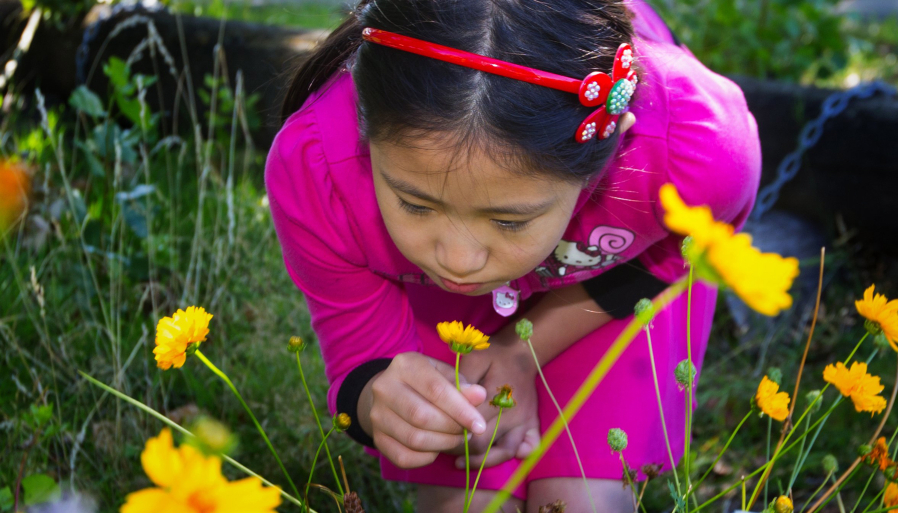SEATTLE — The kids sit in the shade, talking about dirt. They’re at the distractible ages of 9 to 12, it’s a perfect sunny summer day in Seattle, and they’re involved in discussing soil. They’re animated about it.
The question is posed: What kind of soil do plants need to grow well?
“RIIIIICH!” one young woman answers, rolling out the word with relish.
What rich soil looks like, feels like, smells like — brown, soft and “more wetter,” possibly a little stinky — is explored. Then: What did they plant earlier?
“Pollinator flowers!” a young man answers. “They’re going to attract bees and butterflies!” He pumps his fist in the air.
The current gardening agenda: transplantation of strawberry plants. (Later, everybody gets to take one home.) The conversation digresses briefly to the matter of the transplantation of the human heart, then someone worries about the possible presence of spiders vis-a-vis the strawberry project. The group is advised that in the garden, spiders eat other bugs that would, given the chance, eat the plants.



